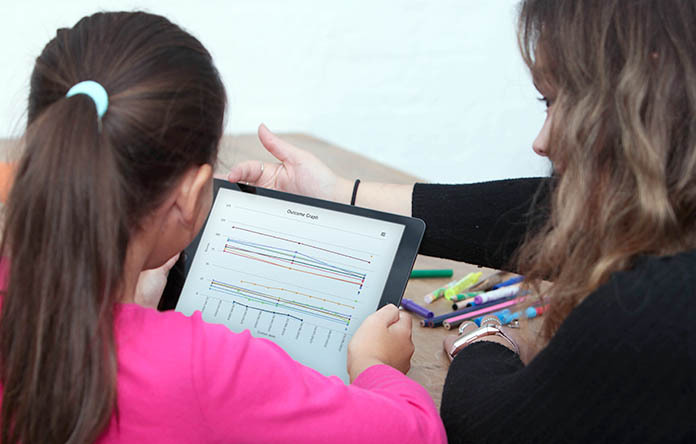
We recently invited Dr Jenny Newbould, Research Leader at RAND Europe and Senior Researcher in BRACE, to discuss the NIHR funded “Early Evaluation of the Children and Young People’s Mental Health Trailblazer programme”.
The evaluation focussed on the Mental Health Support Teams (MHSTs) set up in 25 Trailblazer sites around the country. Participants in surveys and interviews included staff from schools and colleges, those working within the MHSTs and supporting them at regional and national level. The research also included focus groups with children and young people (CYP) themselves.
Speaking at our virtual event, Jenny described key findings about the views of MHSTs, schools and colleges in Trailblazer sites. Participants in the evaluation reported seeing a variety of positive impacts from MHSTs.
Early impacts of MHSTs
The schools and colleges survey found that:
- 75% of school staff are more knowledgeable and confident about mental health and wellbeing issues.
- 75% of school staff are better able to respond to CYP mental health needs
- 66% found better joint working with mental health services and other local partners
- 70% felt that the MHSTs were embedding into their school setting

Schools and colleges universally welcomed the ‘in-house’ mental health support which came at a time when many were seeing substantial increases in mental health issues among pupils. They welcomed the focus on early intervention but some perceived a mismatch between what MHSTs were offering and what they felt was most needed.
The evaluation identified concerns about a growing number of children falling into the gap between MHST’s ‘mild to moderate’ remit and the criteria for specialist support. Some MHSTs reported that they had extended the scope of their remit to provide support for children with more serious mental health issues. Some groups were reported to be underserved by MHSTs, including CYP with special educational needs or neurodiversity, those from ethnic minority backgrounds and some religious backgrounds.
The Education Mental Health Practitioner (EMHP) Role:
Jenny highlighted the central work of EMHPs in MHST service delivery and shared some findings about the role.

The EMHP role was a popular one when introduced and attracted many people from diverse backgrounds; some had backgrounds in education, some came from nursing, and others had experience working in mental health services.
However, the new EMHPs found there was often a mismatch between the training programme and the reality once they were established in the role.
Education Mental Health Practitioners reported:
- Training gaps and process gaps, especially around adapting approaches and working with diverse groups; additional training was being provided locally
- Several EMHPs reported practising beyond their ‘mild to moderate’ remit and training
- Lack of progression opportunities and lack of supervision in some cases
- Retention problems were widely reported along with the associated strain on MHSTs to recruit replacements and on EMHPs to cover additional cases
How is iaptus supporting the work of Education Mental Health Practitioners?
The evaluation also included views from case study sites in Trailblazer areas about data collection, reporting and use. iaptus supports MHSTs to routinely record activity and outcomes, report to the Mental Health Services Data Set (MHSDS) and use data to support service delivery and improvement.
We spoke with East Lancashire Child and Adolescent Services (ELCAS), one of the MHSTs currently using iaptus.
- ELCAS selected iaptus to support MHSTs to manage referrals, monitor waiting times and efficiently record information.
- The system supports EMHPs to set goals with young people and use Routine Outcome Measures in sessions.
- iaptus supports EMHPs to collect good quality data for reporting to the MHSDS nationally.
- iaptus is cloud-based, enabling EMHPs working across educational settings to securely access records and add data from any location.
If you would like to hear about upcoming webinars for those working in children and young people’s mental health services you can sign up here, or email jen.cable@mayden.co.uk.

